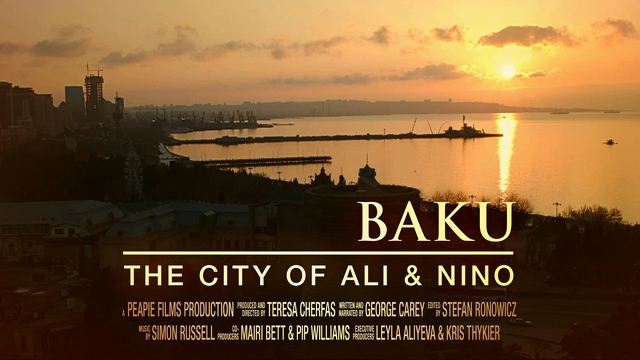The Producers

Teresa Cherfas (producer/director) specialises in documentaries about Russian, Soviet and post-Soviet history. A fluent Russian-speaker with an MPhil in Russian Studies, she produced Amnesty Media award-winner Babitsky’s War, BAFTA award-winner Beslan, and was producer/director on Discovery Channel’s Last of the Czars, Channel 4’s The Crimean War and co-series producer with George Carey on the BBC’s Russia: a Journey with Jonathan Dimbleby. She produced several films for BBC4’s prestigious documentary slot Storyville, including Knocking on Heaven’s Door and Hitler, Stalin and Mr. Jones.

George Carey (writer/narrator) is a former BBC journalist and prize-winning independent producer who now spends most of his time making his own films. Together with Teresa Cherfas as producer, he has developed a distinctive style of documentary, with strong personal narratives, shooting his own stories in remote parts of Russia and the former Soviet Union. His latest film Masterspy of Moscow: George Blake was nominated for a Grierson award.
Stefan Ronwicz (editor) edited the early documentary films of fellow-Pole and Oscar award winning director Pawel Pawlikowksi. He edited George Carey’s previous four personal documentaries, and the team have come together again on Baku: The City of Ali & Nino.
Making The Film
When I was commissioned to make a documentary about the real-life history portrayed in Kurban Said’s novel Ali & Nino, it was the most exhilarating challenge. I was transfixed by the author’s agility in weaving complex historical events so deftly into his romantic narrative. Kurban Said described characters and events that I had only ever seen from a very European viewpoint; it was like looking at history through the wrong end of a telescope.
I soon saw that the city of Baku was itself a key character: as the silent witness both to history and to Ali and Nino’s love story.
I spent several days reading travellers’ and diplomats’ accounts of Baku in the oil boom years before seting off for Baku itself. Now more like the Dubai of the Caspian, in the six weeks I spent there I was able to uncover the history of the region, unearthing bits of life in the city that seemed unchanged since Ali & Nino’s days. I used a local crew, but also stalked the city with a small camera of my own, capturing those sequences that, as a stranger, I perhaps saw with greater surprise.
I was fortunate to find in Fuad Akhundov, not only a star performer but also a treasure chest of archival and historical information. The sheer exuberance and extraordinary contrasts of Ali & Nino’s Baku had been captured in contemporary photographs and archive film. Juxtaposing these with modern-day Baku, gave me the canvas against which the testimony of descendants and expert witnesses comes alive.
 At turn of the 20th Century Baku was an astonishing place. An outpost of the Russian Empire on the Caspian Sea, its newly-minted local and foreign oil tycoons had transformed the city from a sleepy oriental trading-post in the desert into a throbbing international city. A bloody revolution resulted in a brief shining period of democracy before it was crushed by the Bolsheviks. Baku's history has imprinted a colourful tapestry on this city.
At turn of the 20th Century Baku was an astonishing place. An outpost of the Russian Empire on the Caspian Sea, its newly-minted local and foreign oil tycoons had transformed the city from a sleepy oriental trading-post in the desert into a throbbing international city. A bloody revolution resulted in a brief shining period of democracy before it was crushed by the Bolsheviks. Baku's history has imprinted a colourful tapestry on this city.




